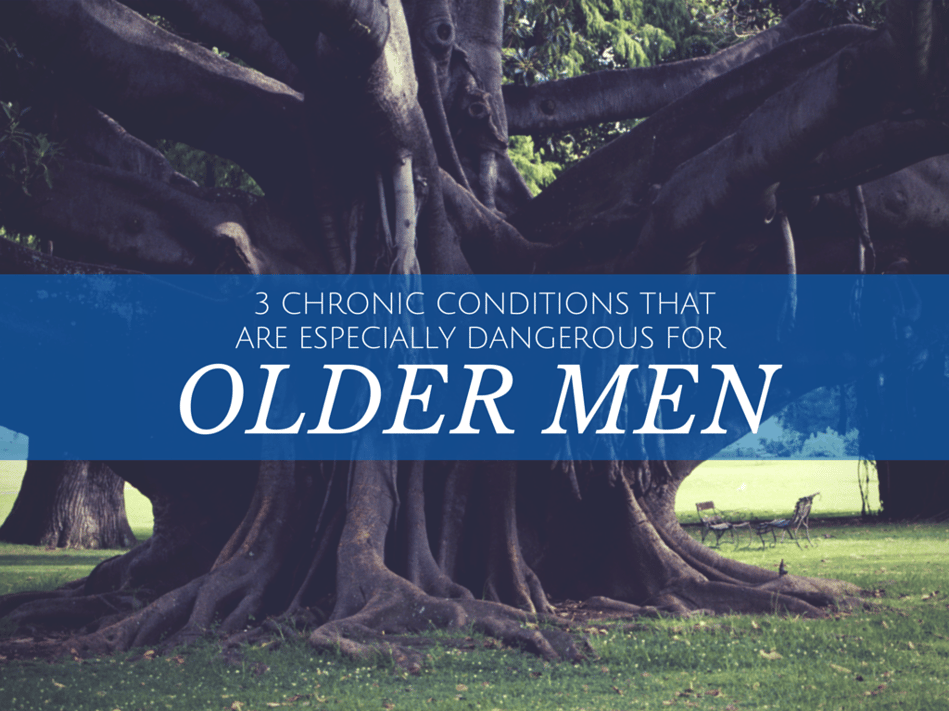
With all of the sporting events and barbecue weather, it’s not a stretch to see why Congress selected June to observe Men’s Health Week back in 1994. In the years since, the health observance has grown from a week-long event to encompass an entire month that men, of all ages, across the nation are encouraged to celebrate by attending “screenings, health fairs, media appearances, and other health education and outreach activities.”
Sounds like a real hoedown. But, any excuse for a party. On a more serious note, June is a good opportunity for men of all ages to make a thoughtful assessment of their physical condition and what they can do to get healthier, but it’s seniors who really have to get serious about health care.
It’s a fact of life that as you get older you’re much more prone to serious chronic diseases and illnesses. But there’s no reason it should be faced with resignation and apathy as though it were inevitable. The truth is that taking a little extra care and being on the lookout for the early warning signs of the most common maladies can go a long ways towards avoiding them altogether, or nipping them in the bud as soon as they rear their ugly heads.
Here’s a quick look at three of the most prevalent ailments among aging males. And if it seems we’re taking an overly lighthearted approach to a deadly serious subject, well, optimism and a cheerful attitude are healthy too.
1. Cancer
More than 60% of all cases of cancer in the U.S. occur in people age 65 or older. As you probably know, discovering it in the early stages of development is critical. Here are the symptoms you should be watching for:
-
Unusual lumps or thick spots under the skin
-
Sudden weight gain or loss
-
Chronic weakness and/or fatigue
-
Skin lesions and sores that won’t heal
-
Unusual bleeding or blood in stool
-
Difficulty swallowing
-
Pretty much anything out of the ordinary or alarming
Obviously all of these symptoms can be caused by things other than cancer, but any sudden changes or feelings of general malaise need to be checked out. In addition, there’s a whole boatload of tests for various types of cancer that should be performed as a routine part of senior health care starting at age 50. Your doctor can fill you in on that.
2. Diabetes
In another clear case of unfairness, men over age 50 are twice as likely to have undetected Type 2 diabetes than women. And diabetes can go undiagnosed for a long time — sometimes more than a decade — by which time considerable complications can have developed.
Men are more likely to develop Type 2 diabetes if they are overweight, have high blood pressure, have a high LDL (bad) cholesterol level, and of course if you’re older and in poor health. Symptoms include:
-
Increased hunger and thirst, especially after meals
-
Frequent dry mouth
-
Weakness and fatigue
-
Frequent need to urinate
-
Urinary tract or skin infections
-
Tingling and numbness in the extremities
-
Blurry vision
-
Nausea and vomiting
Diabetes can lead to kidney and heart disease, hardening of the arteries and poor circulation, vision loss, nerve damage, amputation, and other unpleasant things. Blood and urine tests to detect suspected Type 2 diabetes are usually a routine part of senior health care.
3. Cardiovascular Disease
A whopping 70.2% of men between the ages of 60 to 79 have some type of cardiovascular disease (CVD). It’s the leading cause of death for men in the U.S., accounting for 25% of all deaths.
Risk factors include a lousy diet, obesity and lack of exercise, smoking, diabetes, and drinking too much liquor, as well as certain hereditary factors. It can develop with very little in the way of symptoms, although frequent feelings of dizziness, shortness of breath, and fatigue can be warning signs. Regular checkups and tests as part of a good senior health care strategy is the best early warning system.
In all seriousness, take advantage of the spirit of Men’s Health Month to see your doctor, get some tests done, and make some solemn oaths to live a better lifestyle. Consider it part of your civic duty.












